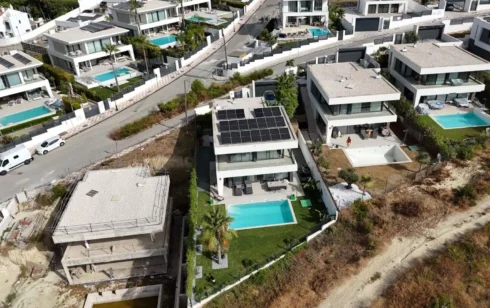 (please read the small print)
(please read the small print)
Jason Heppenstall argues that we must not rely on the politicians and big business to solve the global warming crisis
IF, like me, you were surprised when it was announced at the end of the United Nations Climate Conference in Bali that a curmudgeonly United States had finally relented to world pressure, accepted the error of its ways and signed the agreement to reduce emissions, then please take a deep breath, pinch yourself and open your eyes. Virtually all major news outlets were unanimous in their conclusion: that the largest polluter in the world will pull us back from the brink.
It has done no such thing.
The last time the US ruined an international treaty on combating global warming was in 1997 when a team led by Al Gore first reduced the targets and then cleverly stuck the knife into the treaty to kill it off completely. The corpse of that treaty became known as Kyoto. The only major difference between Kyoto and Bali is the knifeman. At least George Bush doesn’t pretend he is anything otherwise.
The so-called Clean Trading Mechanism, dreamed up by Gore’s team, allows rich nations to buy carbon credits from poor nations. It is a nice idea in principle but in reality it is so full of loopholes and open to corruption that its effect has been to boost carbon dioxide emissions and pull the rug out from under the feet of the renewables industry.
Why do they do it? After all, don’t they all live on the same planet as us? Well, yes. The reason, as even the most garrulous bar room drunk could tell you, is that money talks and American politics is fuelled by it. Big Carbon has a vested interest in strangling at birth any serious renewables initiatives.
That is the depressing bit. Now let us think about what we can do about it. We cannot individually reform American politics, but we can at least cut our own contribution to climate change and forge a moral template. It is estimated that we all urgently need to cut our CO2 footprint to around three tonnes a year. Currently the average in America is 19, while in Britain it is 9.6. The average Spaniard produces 7.7 tonnes a year whereas in Afghanistan it is 30 kilograms (about as much as is created by driving a Range Rover 80 kilometres).
So clearly there is plenty of scope for improvement on our part. I am not going to offer any suggestions as to how we can do this – there are numerous websites and articles in the “Ten things you can do…” mould and you are probably already heartily sick of them. No, what I am going to suggest is far more radical, and quite possibly easier than you think. I am going to suggest not consuming as much. That’s right. Do not buy that bag; do not take that flight.
You will only end up more miserable if you do. Seriously.
In my defence I am going to wheel out some statistics. Since the 1950s we, in the rich Western world, have not become one bit happier, according to psychologists who have conducted a series of wide ranging tests. In fact, there is quite a lot of evidence to suggest that we have all become seriously miserable. Despite the biggest spending splurge in the history of our race, where an average income can now buy you things your grandparents could never have dreamed of, we have become a lot more tense, nervous, uptight and insecure. They say the things proven to make us unhappy are a sense of rootlessness and loss of purpose, an addiction to television (or anything passive), junk food and family breakup.
Luckily, those same psychologists tell us they know what makes us happy. Consumerism, they say, makes us happy for a short time but is not sustainable. For all our so-called sophistication we still seem to act like hairless monkeys with monkey minds and we get jealous when someone has something better than us or when an advertiser makes it seem that you are incomplete without the latest gadget/car/dress/perfume etc. What has been proven to make us happy, apart from a decent level of security and a loving family, are so-called simple things, like community involvement, a creative hobby or an appreciation of nature.
But, unfortunately for us, the cards are not stacked in our favour. The economy in which we live relies on consumerism like fire needs oxygen. Without the continued creation of new desires venture capitalists would go bust, banks would stop lending and the economy would take a nose dive into oblivion. This is known as a hard landing scenario and unfortunately it is the only scenario the ailing life support systems of our planet seem able to support. So it is up to us to create a soft landing by building a locally-based low carbon economy that is not reliant on marketing and endless growth. It will not be easy but the benefits along the way will more than compensate.
I am going to tell you an anecdote that will either make you sick or inspire you, depending on your predisposition. This Christmas I bought my two young daughters nothing more than a watering can each and a packet of peas. I dug over a square of earth in the garden and left them to it. Now they delightedly go out each day with their watering cans to check on the growth of their plants. They want to plant more things, like sweet corn and onions.
As someone once said, the world will not be saved by one or two big organisations; it will be saved by millions of little ones.
Click here to read more News from The Olive Press.






